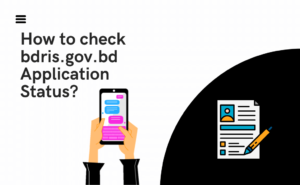The Facebook API is a powerful tool that allows developers to integrate Facebook features and data into their applications. With the rise of social media, the Facebook API has become increasingly popular in the developer community. In this article, we will explore the basics of the Facebook API, its key features and functionality, the benefits of integrating it into your applications, and the security considerations that come with using it.
Understanding the Basics of the Facebook API
The Facebook API is a set of tools and protocols that allow developers to create applications that interact with Facebook. The API provides access to a wide range of features, including user data, friend lists, photos, events, and more. To use the Facebook API, developers must first create a Facebook Developer account and register their application.
Once registered, developers can use the Facebook Graph API to access and manipulate data from Facebook. The Graph API uses a RESTful web service to allow developers to make HTTP requests to Facebook’s servers. These requests can be used to retrieve data, post content, and perform other actions within Facebook.
One of the most powerful features of the Facebook API is its ability to provide access to user data. With the user’s permission, developers can access a wealth of information about the user, including their profile information, their friends, and their activity on Facebook. This data can be used to create personalized experiences within an application, such as displaying a user’s friends or recommending content based on their activity.

Key Features and Functionality of the Facebook API
The Facebook API provides a wide range of features and functionality that can be used to create powerful applications. Some of the key features of the Facebook API include:
Login and Authentication
The Facebook API provides a secure way for users to log in to applications using their Facebook credentials. This allows developers to create a seamless login experience for users, without the need for them to create a new account. The Facebook API also provides a range of authentication options, including OAuth 2.0, which allows developers to access user data with the user’s permission.
Social Plugins
The Facebook API provides a range of social plugins that can be integrated into applications to provide social functionality. These plugins include the Like button, which allows users to show their appreciation for content within an application, and the Comments plugin, which allows users to comment on content within an application.
Open Graph
The Open Graph protocol is a powerful feature of the Facebook API that allows developers to define custom metadata for their content. This metadata can be used to create rich, personalized experiences within an application, such as displaying a user’s activity on Facebook or recommending content based on their interests.
Also Read: How to see archived Messages on Facebook Messenger App?
Benefits of Integrating the Facebook API in Your Applications
There are many benefits to integrating the Facebook API into your applications. Some of these benefits include:
Increased User Engagement
By integrating Facebook features into your application, you can create a more engaging experience for your users. This can lead to increased user retention and a more loyal user base.
Personalized Experiences
The Facebook API provides access to a wealth of user data, which can be used to create personalized experiences within an application. By using this data, you can create a more tailored experience for your users, which can lead to increased user satisfaction and a better overall user experience.
Increased Visibility and Reach
By integrating with Facebook, you can increase the visibility and reach of your application. Facebook has a massive user base, and by leveraging this audience, you can increase the exposure of your application and attract new users.
Also Read: Is the Facebook Settlement Check Real-How to Identify?
Security Considerations for Using the Facebook API
When using the Facebook API, it is important to consider security. The Facebook API provides access to sensitive data, and it is important to take measures to protect this data. Some security considerations to keep in mind when using the Facebook API include:
User Permissions
When accessing user data, it is important to obtain the user’s permission first. This can be done using the Facebook Login API, which allows users to grant permission for your application to access their data.
Secure Storage of Access Tokens
When making requests to the Facebook API, developers must use an access token to authenticate their requests. It is important to store these access tokens securely to prevent unauthorized access to user data.
Use of HTTPS
When communicating with the Facebook API, it is important to use HTTPS to ensure the security of user data. HTTPS encrypts data in transit, providing an additional layer of security.
Conclusion
The Facebook API is a powerful tool that can be used to create engaging, personalized applications. By understanding the basics of the Facebook API, its key features and functionality, the benefits of integrating it into your applications, and the security considerations that come with using it, developers can create powerful, secure applications that leverage the power of Facebook.
Author Profile
-
Raj Singh is a highly experienced digital marketer, SEO consultant, and content writer with over 8 years of experience in the industry.
As a content writer, Raj has a talent for crafting engaging and informative content that resonates with audiences. He has a keen eye for detail and a deep understanding of SEO best practices.
Latest entries
 ApplicationFebruary 20, 2024Maha Food Hall Ticket 2024 Download Now- with Exam Dates
ApplicationFebruary 20, 2024Maha Food Hall Ticket 2024 Download Now- with Exam Dates ApplicationFebruary 18, 2024tsbie m services hall ticket download Inter 1st, 2nd year [2024]
ApplicationFebruary 18, 2024tsbie m services hall ticket download Inter 1st, 2nd year [2024] AppsFebruary 18, 2024Register on Nivesh Mitra App and Download Certificate/Noc
AppsFebruary 18, 2024Register on Nivesh Mitra App and Download Certificate/Noc AppsFebruary 17, 2024Cozovmoni App Download for Android (2024)-Cozovmoni.com
AppsFebruary 17, 2024Cozovmoni App Download for Android (2024)-Cozovmoni.com





